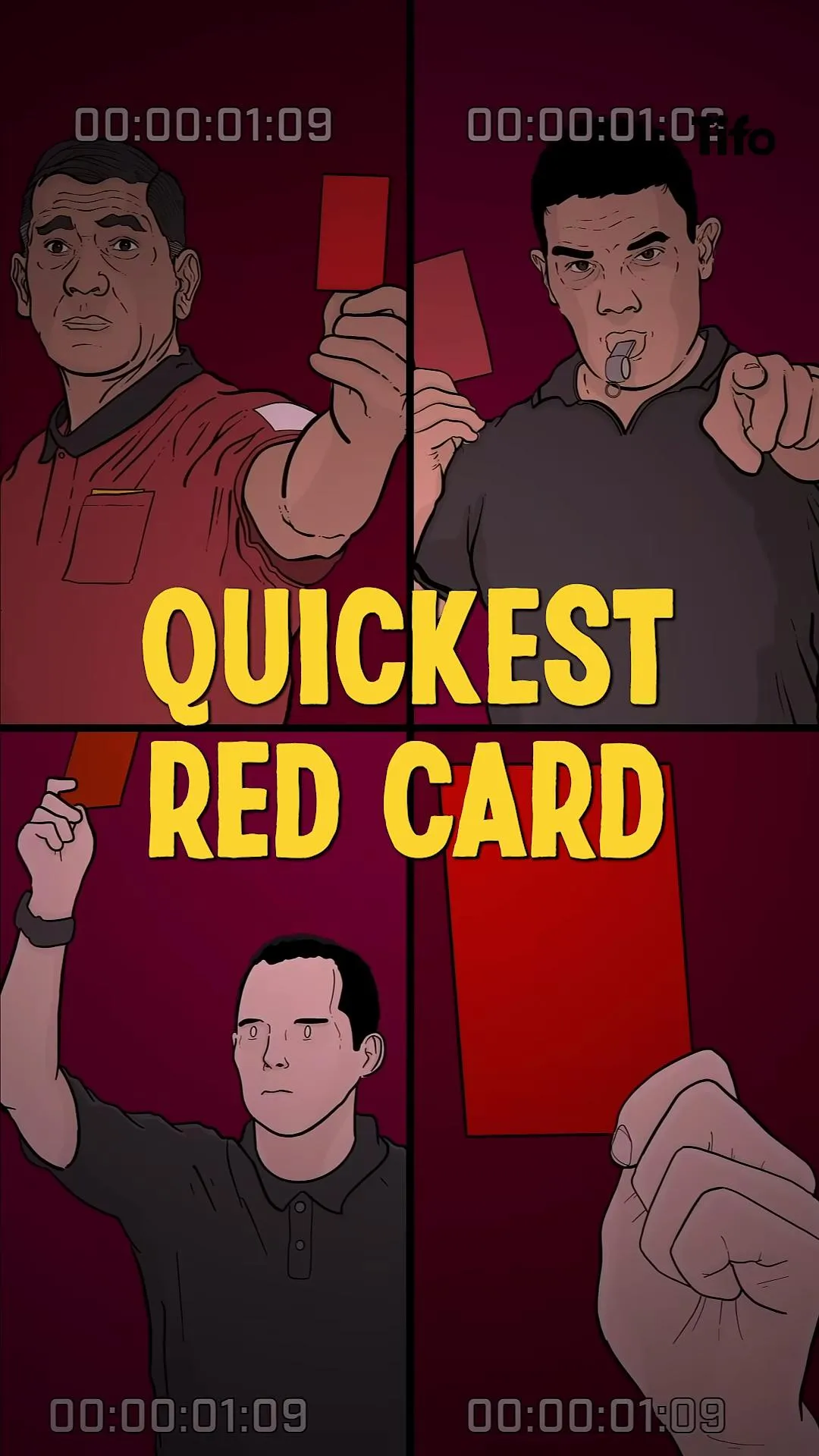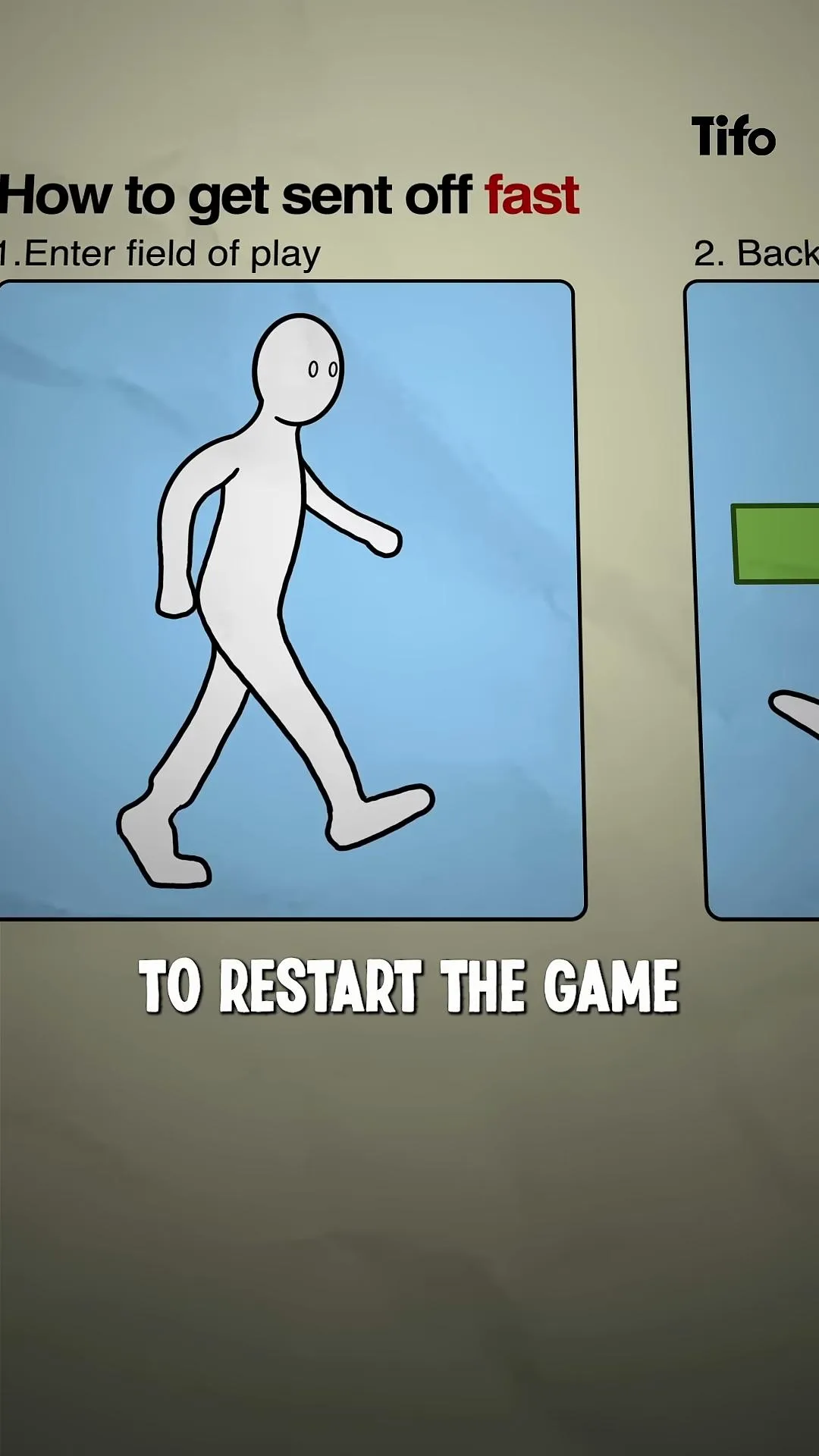The world of football is filled with moments of brilliance, tension, and sometimes, sheer absurdity. One such moment that stands out is the **quickest red card** ever issued in the history of the sport. Have you ever wondered how quickly a player can be sent off? Believe it or not, the record stands at a shocking zero seconds! But how is this even possible? The answer lies in a bizarre incident that took place during a Premier League match in January 2007 involving Sheffield United and Reading. Let’s delve into this extraordinary story and explore other memorable red card moments in football.
What Is the Quickest Red Card in Football History?
The record for the **quickest red card** in football history is held by Keith Gillespie, who was playing for Sheffield United. After being substituted into a match against Reading, Gillespie was shown a red card before the ball was even in play! This incredible event has sparked discussions and debates among football fans and analysts alike. Let’s explore the details of this astonishing case.
The Incident: A Bizarre Turn of Events
On January 12, 2007, Sheffield United was looking to turn around a two-goal deficit against Reading when manager Neil Warnock made a tactical change. He substituted Keith Gillespie into the game during a break in play. However, what happened next was nothing short of outrageous. As Gillespie entered the field, he accidentally backed into Marcus Stephen Hunt and, in a moment of reckless abandon, elbowed him directly in the face. The assistant referee spotted this unsportsmanlike behavior and consulted with the referee, leading to Gillespie receiving a red card before the ball was even back in play.
Understanding the Rules
This incident raises an interesting question: Can a player really receive a red card before they have even touched the ball? According to the Laws of the Game, a player can be sent off for violent conduct at any time, regardless of whether the game has officially restarted. Thus, Gillespie’s record stands firm.
Implications of the Quickest Red Card
The repercussions of this record-setting event were felt both on and off the pitch. For Sheffield United, losing a player before he had even started playing created a tactical nightmare. The team had to adjust their strategies, and it also raised questions about player conduct and the importance of discipline in football.
What This Means for Players
Gillespie’s incident serves as a cautionary tale for players everywhere. Here are a few key takeaways:
- Discipline is Key: Players must maintain composure, even in high-pressure situations.
- Awareness: Being aware of your surroundings can prevent unnecessary fouls.
- Consequences of Actions: A moment of recklessness can have long-lasting effects on a team’s performance.
Other Fast Red Cards in Football
While Gillespie holds the record for the fastest red card, he is not alone in this dubious honor. Here are some other notable instances of quick dismissals in football history:
| Player | Time (Seconds) | Match |
|---|---|---|
| Lee Cattermole | 12 | Sunderland vs. Manchester United |
| Mark Bosnich | 20 | Aston Villa vs. Sheffield United |
| Reda Johnson | 30 | Oldham Athletic vs. Middlesbrough |

Exploring the Impact of Red Cards on Games
Red cards can radically change the dynamics of a football match. Teams face significant disadvantages when they lose a player, especially early in the game. Here are some of the impacts red cards can have:
- Strategic Adjustments: Coaches must adapt their strategies, often leading to a more defensive style of play.
- Player Morale: Losing a player can demoralize the remaining teammates, affecting their performance.
- Fan Reactions: Such incidents can provoke strong reactions from fans, both for and against the player.
How Does VAR Influence Red Card Decisions?
With the introduction of Video Assistant Referee (VAR) technology, the dynamics of officiating red cards have changed significantly. VAR allows referees to review contentious decisions, potentially overturning or confirming red card calls. This technology has sparked debates regarding its effectiveness and the impact it has on the flow of the game.
Learning from Fast Red Cards
As we reflect on the **quickest red card**, it is essential for players, coaches, and fans to learn from these incidents. Understanding the rules, maintaining discipline, and promoting sportsmanship are crucial for the integrity of the sport. Such moments, while shocking, can serve as valuable lessons for everyone involved in football.

Red Card Records: A Look Ahead
As football continues to evolve, the records for red cards may change. The anticipation of witnessing a new record-setting moment adds to the excitement of the game. Fans and analysts alike will be watching closely, eager to see if any player can break Gillespie’s incredible record.
Staying Informed with Football Updates
For those who want to stay updated on the latest red card incidents and other football records, reliable sources such as OneFootball and Give Me Sport are excellent resources. They provide timely articles and analyses that keep fans informed about football’s most thrilling moments.
Final Thoughts on the Quickest Red Card
The tale of Keith Gillespie and the **quickest red card** in football history is a reminder of how unpredictable and thrilling the sport can be. This incident not only highlights the importance of discipline in football but also serves as a fascinating story that will be passed down through generations of fans. As we continue to enjoy the beautiful game, let us always remember the lessons learned from moments like these.
